#pays de galles
Text

Naked on the North Wales Coastal Path. England is a vague distant blue smudge across the estuary on a summer day with the tide out. You can conveniently forget about it (along with your clothes!),
#naturist#nude outdoors#clothesfree#nude in nature#girlblogging#normalize nudity#outdoor nudity#hiking#nonsexual nudity#naturisme#naturiste#pays de galles#naturism in wales#noethlymun
39 notes
·
View notes
Text
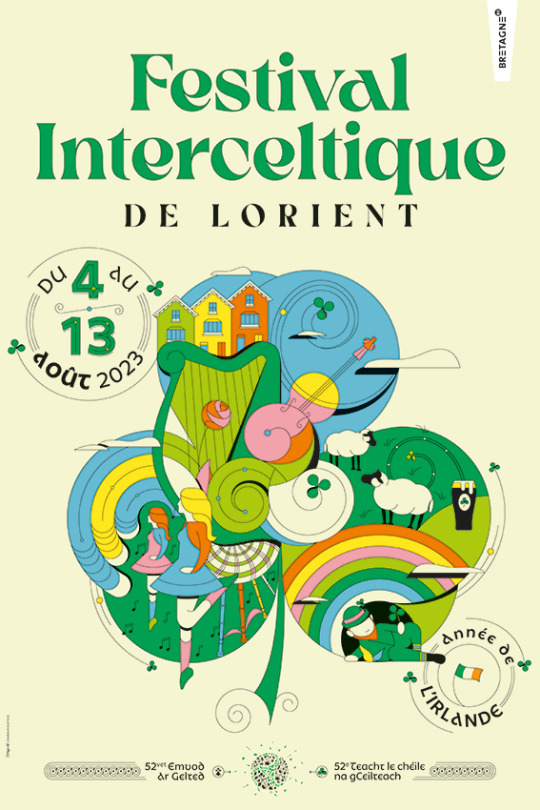
Festival interceltique de Lorient 2023 - du 4 au 13 août
5e édition - Année de l'Irlande
C'est dans 3 mois !!...
#breizh#celtic#festival#music#celtic music#interceltique#FIL#bretagne#Lorient#musique celtique#bzh#irlande#traditional music#pays celtes#culture celtique#ireland#ecosse#pays de galles#man#asturies#affiche#morbihan#musique bretonne#musique traditionnelle#musique celte#brittany#scotland#wales#asturias
23 notes
·
View notes
Text

Travel diary
My own version of the Welsch dragon
#pays de galles#wales#dragon art#traveldiary#carnetdevoyage#art#arte#drawing#carnet de voyage#watercolor
0 notes
Text
Pourquoi Joe Biden est passé d’ami à ennemi ?
Cette manœuvre politique ne passe tout simplement pas le test de l’odorat. Les expressions de désapprobation de Biden à l’égard des bombardements « aveugles » d’Israël, qui ont été le contraire de aveuglement, ne le sont pas non plus.
Quelque chose d’autre se passe ici.
Maintenant, je ne dis pas que les gens de Biden sont hypocrites. Il se pourrait, comme le souligne Matthew Continetti dans sa…

View On WordPress
0 notes
Text
Wales Online | 5 juillet 2014
Derrière la nouvelle assemblée galloise des Manic Street Preachers : les collaborateurs qui ont rendu possible Futurology
Les Manic Street Preachers sortent leur dernier album Futurology lundi. C’est une sortie audacieuse et courageuse qui s’est réalisée avec de nombreux joueurs gallois centraux à sa production. Voici ce que le leader James Dean Bradfield a à dire des collaborateurs qui ont…
View On WordPress
#Derek Jarman#Futurology#Georgia Ruth#Green Gartside#James Dean Bradfield#Kieran Evans#Manic Street Preachers#Manics#Pays de Galles
0 notes
Text
Wales Online | 5 juillet 2014
Derrière la nouvelle assemblée galloise des Manic Street Preachers : les collaborateurs qui ont rendu possible Futurology
Les Manic Street Preachers sortent leur dernier album Futurology lundi. C’est une sortie audacieuse et courageuse qui s’est réalisée avec de nombreux joueurs gallois centraux à sa production. Voici ce que le leader James Dean Bradfield a à dire des collaborateurs qui ont…
View On WordPress
#Derek Jarman#Futurology#Georgia Ruth#Green Gartside#James Dean Bradfield#Kieran Evans#Manic Street Preachers#Manics#Pays de Galles
0 notes
Text
VI Nations - PDG : Warren Gatland a proposé de démissionner
Warren Gatland a proposé à son président de démissionner de son poste de sélectionneur – Icon Sport
Défaits face à l’Italie (21-24), les Gallois ont vécu un Tournoi des Six Nations 2024 véritablement catastrophique. Cinq défaites en cinq rencontres et le Poireau repart avec fâcheuse cuillère de bois.
Face à ce nouveau revers, le cinquième de suite dans cette compétition, Warren Gatland a…
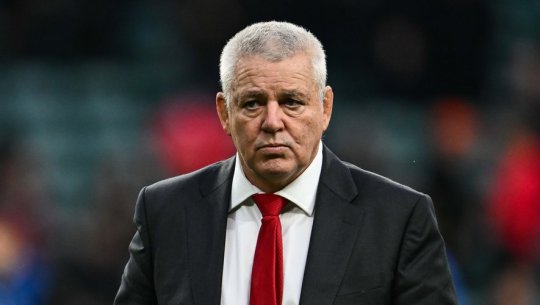
View On WordPress
0 notes
Text
youtube
The Bug Club - Marriage
Découverte de la semaine pour moi, les textes m'ont fait sourire. Je partage.
0 notes
Text

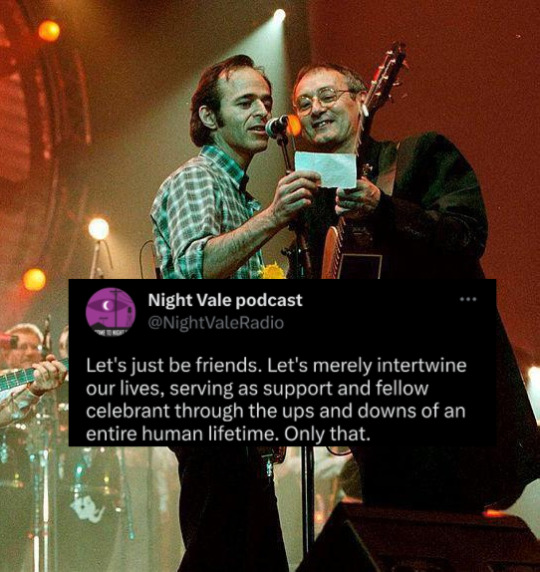
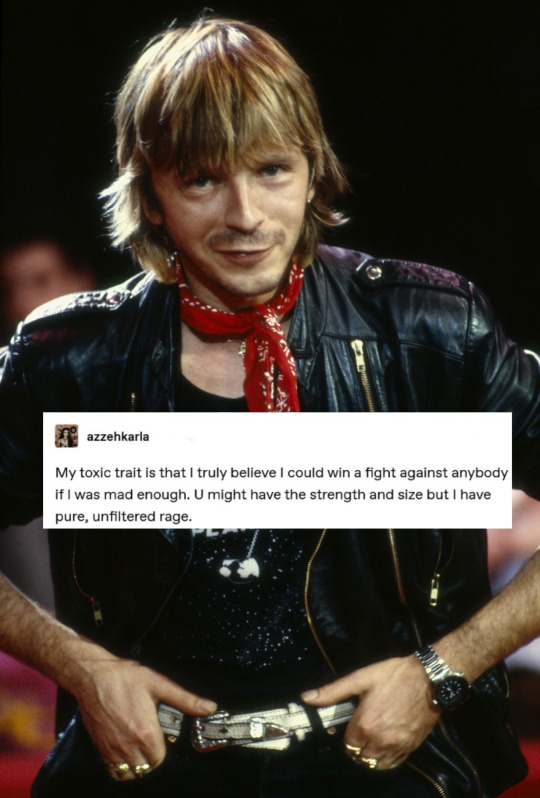

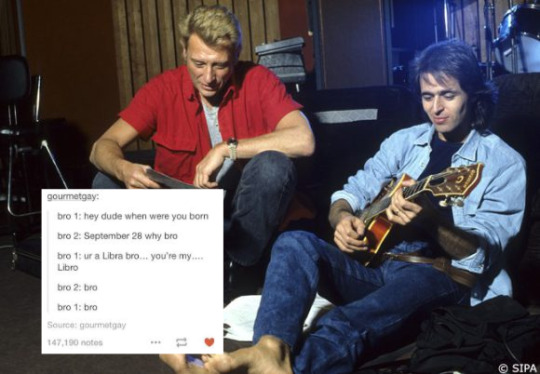
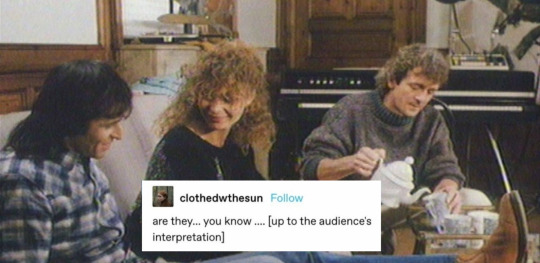


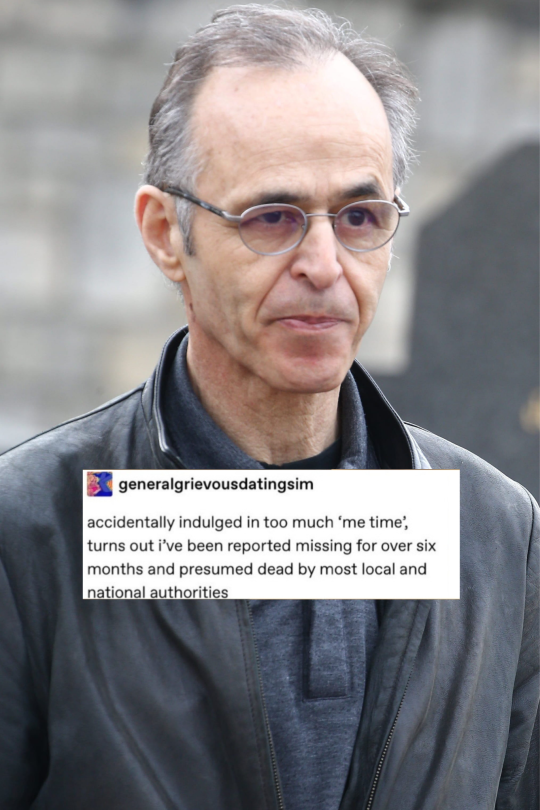
Bonus Barbara

#text post meme#essayez d'ignorer que les 3/4 sont goldman#ça se voit pas trop mais sur la deuxième photo de jones et goldman#jjg a une jonquille à sa chemise#et la jonquille est un symbole national du pays de galles#voilà#Jean-Jacques goldman#alain souchon#michael jones#johnny hallyday#barbara#Renaud#francis cabrel#serge gainsbourg#laurent voulzy
68 notes
·
View notes
Text

Abbaye de Tintern
#L'abbaye de Tintern (en anglais Tintern Abbey)#est une ancienne abbaye cistercienne#située au pays de Galles
12 notes
·
View notes
Text
Résumé : L'Afrique du Sud ÉCRASE le pays de Galles !
youtube
View On WordPress
0 notes
Text

Françoise Hardy
Icon of 60s music who sang of love as a source of ‘wretched, profound, endless questioning’
Françoise Hardy, who has died of cancer aged 80, shot to fame as part of France’s génération yé-yé, the jaunty transatlantic and cross-channel collision between French chanson and American rock’n’roll that also produced Johnny Hallyday and France Gall. But from the start, there was something that set her apart: a wistfulness, a sentimental self-reflection, a poise that belied a lifelong shyness and insecurity. A 60s icon, as big, for a while, in London as in Paris, Hardy was, in many ways, the antithesis of that restive, revolutionary decade.
Unlike her contemporaries, when she sang of love it was about “suffering and frustration, illusion and disillusion; wretched, profound, endless questioning”. Her songs, she told Le Monde, were a necessary outlet: “I wrote about my experience … A beautiful, melancholic melody is what best transcends the pain.”
Men fell, in droves, for her timid beauty. Mick Jagger described Hardy as his “ideal woman”. David Bowie, “passionately in love” for years, courted her backstage, in dressing gown and embroidered slippers. In 1964, the sleeve notes of Another Side of Bob Dylan featured a whole poem “for françoise hardy/at the seine’s edge”. (Two years later, after a concert at the Olympia music hall in Paris, Dylan invited the singer to a party in his suite at the George V, one of the capital’s grandest hotels. In his bedroom, he played her two tracks from Blonde on Blonde: Just Like a Woman and I Want You. Hardy always insisted she was so starstruck she never got the message.)
But the love of Hardy’s life, the father of her son and the agonising inspiration for many of her songs, was the French singer and actor Jacques Dutronc, whom she met in 1967 and married in 1981. The couple separated in the 90s, but never divorced, remaining on good terms. “Love is a remarkable force, even if its price is perpetual torment,” she said. “But without that torment, I would not have written a single lyric.”
Hardy was born in Nazi-occupied Paris, in the same maternity clinic at the top of the rue des Martyrs in the ninth arrondissement that had delivered Hallyday a few months earlier. Her mother was Madeleine Hardy, an accountant, and her father, Pierre Dillard, was a company director who was married to another woman. Françoise grew up in a two-room apartment nearby with her sister, Michèle, born 18 months later, and a solitary mother with whom Françoise had a “fusional, symbiotic relationship … I loved her probably too much – exclusively, unconditionally”. The girls rarely saw their father, who often neglected to pay his share of their upkeep and was regularly late with the modest fees for their Catholic education.
Weekends were spent with grandparents – notably an “egocentric, narrow-minded, frigid and emasculating” grandmother – outside Paris; many childhood holidays with friends of her mother’s in Austria, to learn German. Shy, dreamy, deeply ashamed of her unconventional family, Hardy turned to the radio, where in the late 50s, on the English service of Radio Luxembourg, she encountered a music – Presley, the Everly Brothers, Brenda Lee, Cliff Richard – that “affected me more than anything else. That ended up changing my life.”
Aged 16, she asked for a guitar for passing the first part of her baccalauréat. A year later, having passed the second part with honours, she taught herself a handful of chords “that produced most of my songs over the next 10 years”, and began writing. At the Sorbonne, studying German, she auditioned, unsuccessfully but not disastrously, for one record company, and started singing lessons.
Hardy’s contract with Vogue Records – who wanted “a female Johnny Hallyday” – was signed on 14 November 1961. She made her first TV appearance, in black and white on the state broadcaster’s only channel, six months later, and released her debut EP, featuring three songs of her own and a cover of a Bobby Lee Trammell song.
Her breakthrough came, rather incongruously, on the night of Charles de Gaulle’s October 1962 referendum asking voters whether France’s future presidents should be directly elected. In a musical interlude while the nation awaited the result, Hardy performed a track from her EP, Tous les garçons et les filles. The nation loved it. The song (sample line: “I walk down the streets, my soul in sorrow”) became a monumental hit in France, spending a total of 15 weeks at No 1 between October 1962 and April 1963 and becoming a million-seller. Within weeks Hardy was on the cover of Paris Match, plunged, still in her teens, into the whirlwind of the swinging 60s (which she detested: she disapproved of casual sex, avoided drugs, and could only ever remember being drunk twice).
Her first boyfriend, the photographer Jean-Marie Périer, ensured her picture – miniskirt, white boots, long hair, signature fringe – went around the world. Courrèges, Yves Saint Laurent and Paco Rabanne competed to dress her, for seasons at the Olympia in Paris, the Savoy in London, and shows in Germany, Italy, the Netherlands, Denmark, Spain, Canada and South Africa. In New York, William Klein photographed her for Vogue. Roger Vadim, Jean-Luc Godard and John Frankenheimer cast her in films.
The hits flowed, recorded – some in London, produced by Charles Blackwell – in French, English, German, Italian, some written by Hardy, others not.
But at the end of the 60s, barely five years after she began, Hardy abruptly gave up performing live, and the cinema. “I hated what it all involved,” she explained. “Being separated from the man I loved, the waiting, the solitude, depending on the phone. And I’ve never been able to act. I can’t simulate, or lie. Songwriting, on the other hand … dives deep.” Life in the fast lane, she declared, was “a gilded prison”.
But she continued recording, releasing a dozen bestselling albums in France, of which she always cited La Question (1971), a sophisticated collaboration with the Brazilian musician Tuca, as her favourite. She duetted with French artists Henri Salvador, Alain Souchon and Benjamin Biolay, and later with Damon Albarn and Iggy Pop.
Hardy was never very interested in politics (she decamped to Corsica with Dutronc for the duration of les événements of May 1968, whose student leaders she distrusted), although she had strong opinions about questions such as abortion. Hardy was, however, fascinated by astrology, writing two books on the subject.
She continued to work in later life, despite claiming that her 1988 album, Décalages, would be her last. A string of new recordings in the 1990s and 2000s, a 2008 autobiography, Le Désespoir des Singes (the title apparently derived from a monkey puzzle tree in the Bagatelle gardens near her Paris flat, because its sharp, spiky leaves reminded her of “men who have caused me despair”), and her last album, Personne d’autre, released in 2018, appeared despite family and personal tragedies: Hardy was at her mother’s side when, suffering from Charcot–Marie–Tooth disease, she died by euthanasia in 1994.
Hardy herself was diagnosed in 2004 with lymphoma, eventually recovering after an experimental form of chemotherapy – but only after she had been hospitalised, in an induced coma, in 2015. Three years later, another tumour was detected, this time in her ear. In 2021, she told the magazine Femme Actuelle (by email; she said she could no longer talk) that she would like to be able to choose to end her life, as her mother had done, and in 2023, in an interview with Paris Match, called on Emmanuel Macron, the French president, to legalise assisted dying.
Shortly before that second diagnosis, in 2018, Hardy reflected on a career that had brought pretty much every award French music can offer (plus a medal from the Académie Française), telling the Observer she had always been surprised that people – “even very good musicians” – had been moved by her voice.
“I know its limitations, I always have,” she said. “But I have chosen carefully. What a person sings is an expression of what they are. Luckily for me, the most beautiful songs are not happy songs. The songs we remember are the sad, romantic songs.”
She is survived by Dutronc, and by their son, Thomas.
🔔 Françoise Madeleine Hardy, singer, born 17 January 1944; died 11 June 2024
Daily inspiration. Discover more photos at Just for Books…?
35 notes
·
View notes
Text
Les dangers peuvent être partout. Lundi 4 mars 2024, au Pays de Galles, une dame venue faire ses courses a été secourue par un commerçant après avoir été soulevée par le volet électrique du magasin.
25 notes
·
View notes
Text
L'église St Cwyfan, la petite église dans la mer
Nouvel article publié sur https://www.2tout2rien.fr/leglise-st-cwyfan-la-petite-eglise-dans-la-mer/
L'église St Cwyfan, la petite église dans la mer

#Anglesey#eglise#erosion#ile#maree#mer#mur#Pays de Galles#protection#vidéo#architecture#imxok#voyage
0 notes
Text


La plus petite maison de GB (à Conwy, Pays de Galles)
33 notes
·
View notes
Text



ora, CLARA GALLE? ah, não, os passos no mapa do maroto nunca mentem. aquela é PANDORA ROSIER, que tem 18 anos e é muito famosa na CORVINAL. segundo sua ficha escolar, ele é PURO SANGUE e faz parte de ARITMÂNCIA, ALQUIMIA E RUNAS ANTIGAS. será que é verdade que ela pretende ser INOMINÁVEL quando sair de hogwarts? o ano está acabando, é bom se decidir logo! boa sorte em seus NEWTs, você vai precisar.

* BIOGRAFIA:
Era como se toda a sua vida já estivesse escrita em uma pedra sagrada, cuidadosamente moldada em uma missão além de sua vontade para que continuasse, assim como outros de sua linhagem, a prosperar e manter seu legado e valores intactos. Uma tolice imensurável, mas que se passava por gerações e ninguém se opunha, mais ainda, orgulhavam-se da origem pura e seus princípios antagônicos.
Desde que adquiriu consciência, Pandora percebeu que papéis de liderança estavam fora de suas mãos, deixados para os seus irmãos. Tanto o mais velho quanto o mais novo tinham deveres que nunca foram atribuídos a ela. Não importava, porém, não queria se sobressair em relação as pessoas a sua volta, seguiria obedientemente as normas impostas. Era assim que pensava, pelo menos, quando adquiriu certa idade, o destino se mostrou mais complicado do que deveria ser.
Era pequena demais; uma garotinha especial demais para entender, costumava ouvir sua tia mais afetuosa dizer para sua mãe. Ser especial era pejorativo, sabia disso, mas realmente não entendia qual era o problema com as palavras que saíam dos seus lábios e chocavam a sua família. Eram sonhos que se misturavam tão fortemente com a realidade em seus olhos ingênuos que nem percebia dizer algo que ainda iria acontecer. E era revoltante. E errado. Pandora deveria parar. E ela parou, é claro, era obediente e queria tanto agradar seus pais.
Por outro lado, isso mudou a dinâmica familiar. Tornou-se silenciosa ao ponto de calar-se completamente, ficando meses sem emitir uma palavra. Aprendeu a língua de sinais com a qual se comunicava claramente com os elfos domésticos que lhe serviam, já os seus parentes — pais, irmãos, primos, tios — a deixavam perder-se em um mundo de silêncio punitivo. Era o conceito de amor que conhecia, delicado e distante em seu meio, mas que se apegava com tudo que tinha.
Seu ciclo era restrito a sua família e aos membros de outras com tanta relevância quanto a sua em reuniões e encontros formais, era usual e necessário manter bons laços com semelhantes. Até que ingressou em Hogwarts aos seus onze anos e todo o seu mundo se expandiu.
Destoou-se ao ser selecionada para a Corvinal, gerando a ausência de cartas e um suspiro de decepção nas primeiras férias quando encontrou seus pais. Poderia ter se adaptado mais rápido a sua nova casa se tivesse uma comunicação normal e irmãos que não intimidassem da mesa da Sonserina e quisessem uma satisfação se alguém chegasse perto dela sob a supervisão deles.
Por outro lado, quando a mesma não existia, na sala comunal da Corvinal, Pandora ganhou uma liberdade que não conhecia anteriormente. E, aos poucos, foi se encontrando e se comunicando da sua maneira com as pessoas a sua volta. Embora continuasse da mesma forma em casa, seguindo o seu roteiro perfeitamente, ela sentia que conseguia pensar com a sua própria cabeça e determinar seus próprios ideais, levando-a diretamente ao que tentava impedir com todas as forças: suas visões.
Corre pelo lado contrário de suas inclinações, tentando alinhar o que quer que esteja de errado consigo para que isso não afete (ou irrite) sua família. E, portanto, mantêm essa parte de sua mente fechada — na medida do possível — para que continue a seguir um caminho que ainda caiba no molde que foi colocada. Ainda que planeje, muito secretamente, trabalhar no departamento de mistérios e tenha estudado todos esses anos com o objetivo de, talvez, quem sabe, ter coragem para ser de um tamanho diferente. E viver uma vida que ninguém além dela poderia ter sonhado. Tão imprevisível quanto pode ser.
* HEADCANONS:
underco.
6 notes
·
View notes